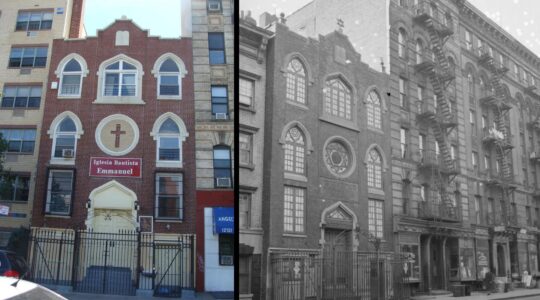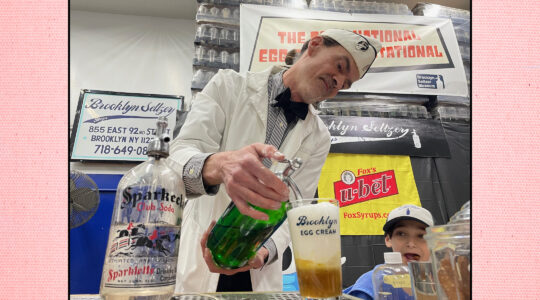John Thorn had a busy month in March. His latest book, “Baseball in the Garden of Eden: The Secret History of the Early Game” (Simon and Schuster) was published, and he was named official historian of Major League Baseball. Which is not bad for a nice Jewish boy who was born in a displaced persons camp in Stuttgart, Germany. Thorn, who will turn 64 shortly after this week’s Opening Day, offered some insights into baseball and the Jewish-American experience in a telephone interview last week.
Q: How do you get from a DP camp to being a baseball historian, let alone the official one?
A: I was born in the American sector of occupied Germany, but it’s a little odd to say I was born in Germany because I was never a German. I was a stateless person. My parents were both Polish Jews. My father was working as a translator for HIAS in Stuttgart. He had been in the University of Geneva’s dental school when the war broke out, he went back to Poland because his [then-] girlfriend, my mother, was there. He must have been one of the only Jews going in that direction in 1939. They moved to America shortly after I was born. We lived in the Bronx and then in 1954 moved to Kew Gardens.
What drew you to baseball?
I believe that part of the attraction of baseball was it was something on which neither of my parents could give advice. Seriously, though, at first it was more the baseball cards than the game. At 2 ½, I spoke German reasonably well, and a little Polish. But at nursery school, I was tormented by my classmates, and one day I came home and told my parents I would no longer respond to anything but English. I taught myself to read from the backs of cereal boxes and of the backs of those magical cards that came with bubble gum. That was my ticket to being an American.
In that respect, your path is pretty typical. Why has baseball been such a vehicle for Jews and other immigrants to acculturate in America?
Baseball is called the National Pastime for a reason. It’s the game with which new Americans identify, to which they attach their hopes and dreams; it provides an escape from the routine and makes you feel American. If you’re an outsider, baseball appears to be a game in which there are no restrictions in size or weight or religion or color. For someone born in the United States, it’s not easy to understand how much baseball can make you feel like “one of the guys” but it can. And for a writer, baseball is a wonderful prism through which you can look at other aspects of American life.
It was amazing to me to learn that Jackie Robinson set foot on a major-league baseball field for the first time two days before I was born. I became attached to Robinson very strongly. Jews tend to go with the underdog for obvious historical reasons, and Robinson seemed to me a real hero. He was hated for no good reason but his race, and Jews know something about that.
What led you into writing about the game?
That happened almost accidentally. I followed the game very avidly, as a player, as a reader, as a fan. I had a photographic memory, which made me the darling of my juvenile set, because I could recite players’ statistics endlessly. I went to graduate school in English literature at Washington University in St. Louis, working on a thesis on the poet George Herbert, but that quickly paled in interest when I watched how the Mets were making their run at the ’69 pennant. That captivated me completely. Eventually I left grad school and returned to New York, and I ended up in book publishing and in 1974 was asked to finish up a baseball book that was an expansion of an older book. That sold well, but it was not a good piece of work. Five years later, I wrote another one, “The Relief Pitcher,” which was more serious.
And you’ve written, co-written or edited over 30 books now, most of them on baseball. How did you get the official historian’s post?
Commissioner [Bud] Selig and I had had some discussions about the committee on the origins of the game, which he thought was a pretty snappy idea. Out of our conversations the invitation emerged. The announcement of the post came first, but my work on [the game’s] origins really preceded it.
My stated job is to serve the game and to assist anyone in major-league baseball requiring historical knowledge or precedent. It’s something I’ve been preparing for my whole life.
We seem to be living through a golden age of Jews in major-league baseball, what with Gabe Kapler, Ian Kinsler, Ryan Braun, etc.
It’s true that we’ve had quite an influx. I don’t like hearing people saying, “Well, his father is Jewish but…” My feeling is, please save your taxonomy and hairsplitting and take it off the ball field.
As for baseball’s golden ages, the golden age of baseball coincides with the year when you were 12 years old.
The New York Jewish Week brings you the stories behind the headlines, keeping you connected to Jewish life in New York. Help sustain the reporting you trust by donating today.




